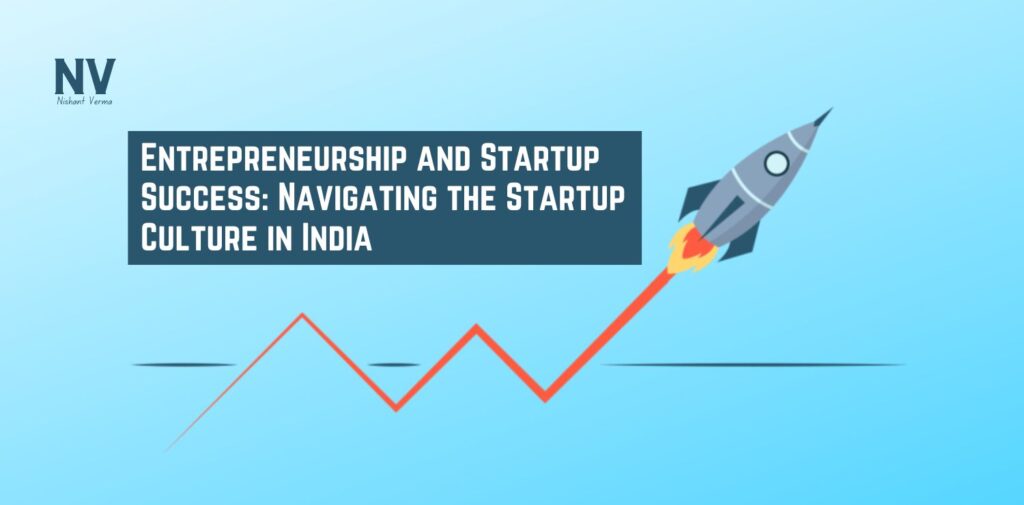India’s entrepreneurial landscape has transformed dramatically in recent years. The nation, known for its rich history of trade and commerce, is now a thriving hub for startups and innovation. From tech startups to social enterprises, the rise of entrepreneurial ventures has reshaped the business environment, creating new opportunities and challenges. For aspiring entrepreneurs and those already on their journey, understanding the intricacies of starting and scaling a business in India is crucial. This article delves into the key aspects of entrepreneurship and startup success in the Indian context, offering insights and strategies to help navigate this dynamic field.
The Startup Boom in India
India’s startup ecosystem has seen unprecedented growth, driven by a combination of factors including a young and tech-savvy population, increasing access to venture capital, and supportive government policies. According to the National Association of Software and Service Companies (NASSCOM), India ranks third globally in the number of startups and is home to numerous unicorns (privately-held startups valued at over $1 billion).
The Indian government has also played a pivotal role in fostering entrepreneurship through initiatives such as Startup India and Atmanirbhar Bharat. These programs offer benefits including tax exemptions, simplified regulations, and funding support, aimed at nurturing startups and promoting innovation.

Starting a Business: Key Considerations
- Identifying a Niche and Validating Ideas: The first step in starting a business is identifying a niche or market gap that your venture can address. This involves thorough research to understand market needs, customer pain points, and competitive landscape. Validation of your business idea through surveys, focus groups, and minimum viable products (MVPs) is essential to ensure that there is a demand for your product or service.
- Creating a Robust Business Plan: A well-structured business plan serves as a roadmap for your startup. It should outline your business model, target market, value proposition, marketing strategy, revenue streams, and financial projections. A strong business plan not only guides your operations but also attracts investors by demonstrating the viability and potential of your venture.
- Forming a Strong Team: Building a skilled and motivated team is crucial for startup success. Look for individuals who complement your skills and bring diverse expertise to the table. A strong team with shared vision and values can drive your startup forward and help navigate the challenges of the entrepreneurial journey.
- Legal and Regulatory Compliance: Navigating the legal and regulatory landscape is vital for any startup. This includes registering your business, obtaining necessary licenses and permits, and ensuring compliance with tax regulations. Consulting with legal and financial advisors can help you address these requirements effectively and avoid potential pitfalls.

Securing Funding: Strategies and Sources
- Bootstrapping: Many entrepreneurs start by bootstrapping, using personal savings or revenue generated from early sales to fund their business. While this approach offers control and minimizes debt, it may limit the speed of growth and scalability.
- Angel Investors and Venture Capital: Angel investors and venture capitalists are crucial sources of funding for startups looking to scale quickly. Angel investors typically invest in the early stages of a startup, providing both capital and mentorship. Venture capitalists offer larger funding rounds for startups with high growth potential. Building a strong pitch and demonstrating traction are key to attracting these investors.
- Government Grants and Schemes: The Indian government offers various grants and funding schemes to support startups. Programs like Startup India, Pradhan Mantri Rojgar Protsahan Yojana (PMRPY), and the Fund of Funds for Startups (FFS) provide financial assistance and incentives. Researching and applying for these schemes can provide valuable financial support.
- Crowdfunding: Crowdfunding platforms such as Kickstarter and Indiegogo allow startups to raise funds from a large number of people. This approach not only provides capital but also validates your idea and creates a community of supporters. However, successful crowdfunding requires a well-crafted campaign and effective marketing.
Scaling a Startup: Strategies for Growth
- Customer Acquisition and Retention: Effective customer acquisition and retention strategies are key to scaling a startup. Focus on understanding your customers’ needs, delivering exceptional value, and building strong relationships. Implementing a data-driven approach to marketing and customer feedback can help refine your strategies and drive growth.
- Expanding Market Reach: Scaling often involves expanding your market reach, whether through geographical expansion, targeting new customer segments, or diversifying your product offerings. Conduct market research to identify opportunities and develop a strategy to enter new markets successfully.
- Investing in Technology and Innovation: Technology plays a crucial role in scaling a startup. Investing in scalable technology solutions, such as cloud infrastructure and automation tools, can enhance operational efficiency and support growth. Staying innovative and adapting to technological advancements can also give you a competitive edge.
- Building Strategic Partnerships: Strategic partnerships with other businesses, industry influencers, or distribution channels can accelerate growth and open new opportunities. Collaborations can provide access to new markets, resources, and expertise, helping your startup expand and thrive.

Overcoming Challenges: Resilience and Adaptability
Entrepreneurship is fraught with challenges, from market competition and financial constraints to regulatory hurdles and operational issues. Resilience and adaptability are essential qualities for navigating these challenges. Developing a growth mindset, embracing failure as a learning opportunity, and continuously iterating on your strategies can help you overcome obstacles and achieve long-term success.
Learning from Success Stories
India is home to numerous inspiring startup success stories that offer valuable lessons for aspiring entrepreneurs. Companies like Flipkart, Ola, and Zomato have transformed their respective industries through innovation, perseverance, and strategic vision. Studying these success stories can provide insights into effective strategies, common pitfalls, and the entrepreneurial mindset needed to succeed.
Conclusion
The entrepreneurial journey in India is both exciting and challenging. With the right strategies, resources, and mindset, aspiring entrepreneurs can navigate the startup landscape and achieve success. By understanding the key aspects of starting and scaling a business, securing funding, and overcoming challenges, you can position yourself for growth and make a meaningful impact in the dynamic world of Indian entrepreneurship.
Embrace the opportunities, learn from the experiences of others, and stay resilient as you embark on your entrepreneurial journey. The road to startup success may be winding, but with determination and strategic thinking, you can turn your vision into reality.




